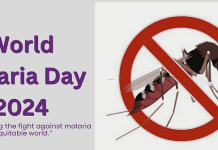
Biopharmaceutical company, Pfizer, has committed 23 of its current innovative medicines and vaccines on a not-for-profit basis to 45 lower-income countries.
Pfizer’s CEO and Chairman, Albert Bourla, made the announcement on Wednesday during a media briefing at the ongoing World Economic Forum (WEF) in Davos, Switzerland, monitored virtually by the News Agency of Nigeria (NAN).
Bourla noted that the innovative patent-protected medicines and vaccines provided would treat infectious diseases including COVID-19, certain cancers, and rare and inflammatory diseases.
According to him, the agreement also allows for all of Pfizer’s future innovative products to be provided to the same countries under the same terms.
“This initiative aims to greatly reduce the health inequities that exist between lower-income countries and the rest of the world.
“It will enable them to have access to high-quality, safe and effective healthcare solutions for all people, regardless of where they live or their income level,” he said.
He added that the initiative would assist to address challenges and systemic barriers that limit access to innovative medicines and vaccines.
According to him, it also serves as a call-to-action for the broader global health community.
He said that the pact tagged ‘‘An Accord for a Healthier World” was in partnership with the Bill and Melinda Gates Foundation, governments of Rwanda, Ghana, Senegal, Malawi and Uganda.
Bourla said that Pfizer would collaborate with Accord participants to identify quick and efficient regulatory pathways and procurement processes to reduce the amount of time it takes to make new medicines and vaccines available in these countries.
Also, Mr Paul Kagame, President of Rwanda, said rapid and advanced medicines and vaccines were the cornerstone of global health equity.
Kagame said the accord was a step toward strengthening Africa’s healthcare system and pharmaceutical regulators for sustainable health security.
He commended Pfizer, noting that the commitment under the accord programme sets a new standard that should be emulated by others.
Similarly, President Lazarus Chakwera of Malawi, said that the accord was an embodiment of what the World Economic Forum stands for: strategic synergy between governments, private sectors and civil society.
Chakwera noted that the accord was not a handout but a strategic partnership that would enhance manufacturing, philanthropy and governance towards putting human progress ahead of business profits and political posturing.
He added that access to quality medicines and vaccines was a challenge to his country, noting that the accord would accelerate his quest to achieve universal health coverage for its citizens.
Also, Mr Bill Gates, Co-Chair, Bill and Melinda Gates Foundation, said that the announcement by Pfizer would enhance access to life saving medicines and vaccines to more people globally.
Gates noted that Pfizer’s commitment to create new products with the foundation would save more lives through expertise deployed and boost global health equity.
“We are pleased to be working with Pfizer and talking to the entire pharmaceutical industry about how this kind of initiative could promote environmental, social, and governance efforts,” Gates said.
The Group President, Pfizer Biopharmaceuticals Group, Angela Hwang, called on more governments, development organisations, and financial institutions to join the accord to build a healthier world.
NAN reports that Rwanda, Ghana, Malawi, Senegal and Uganda are the first five countries to commit to the Accord.
Pfizer would provide expertise to support diagnosis, healthcare professional education and training along with supply chain management and other infrastructure enhancements.
The Accord countries include all 27 low-income countries as well as 18 lower-middle-income countries that have transitioned from low to lower-middle-income classification in the last ten years. (NAN)













